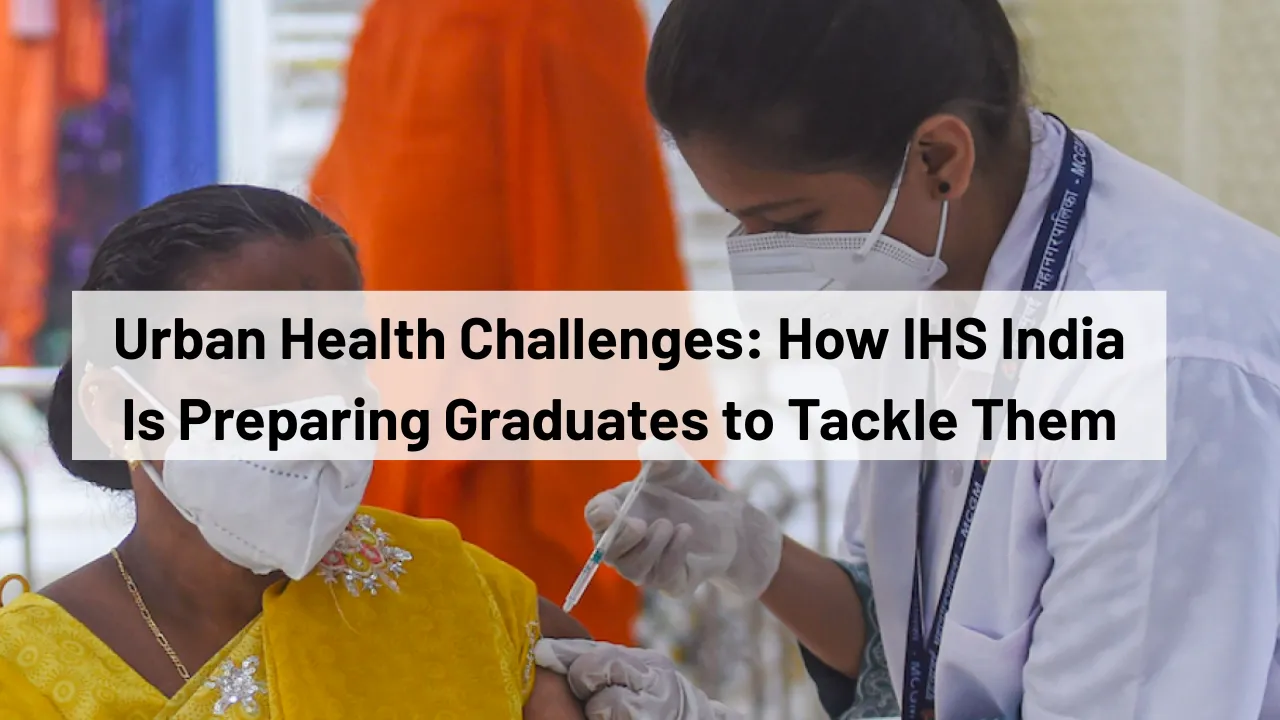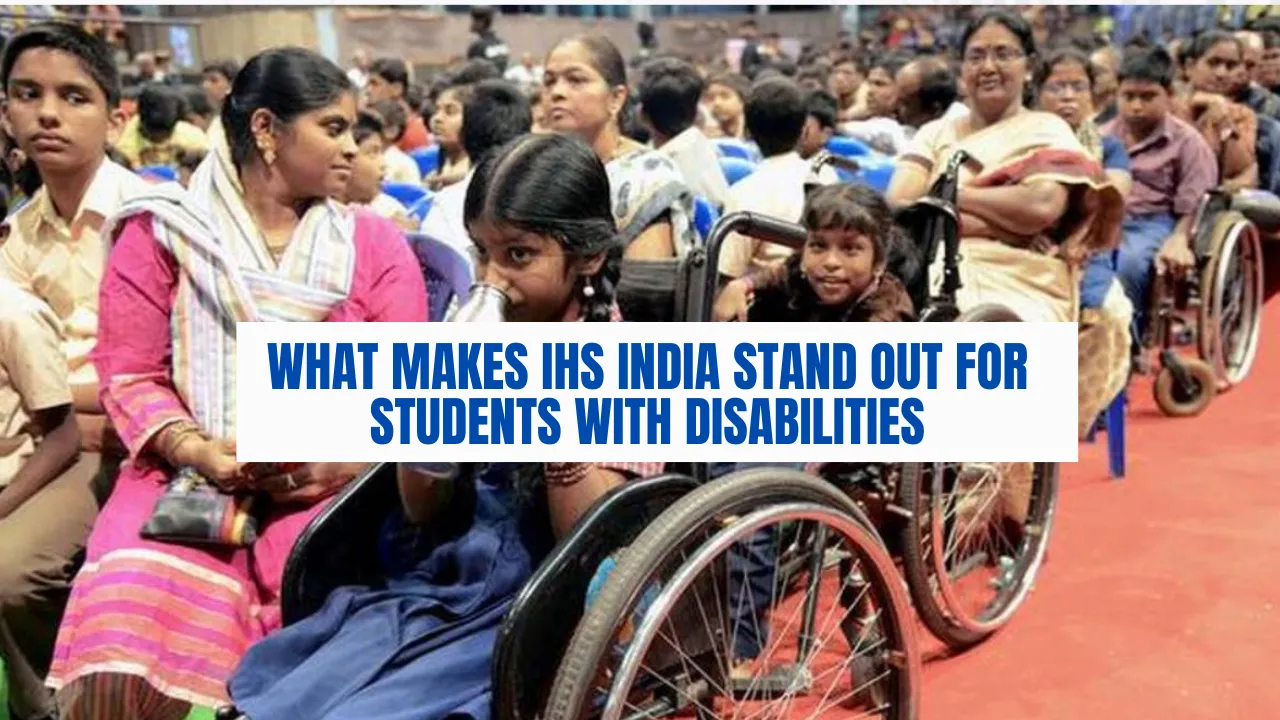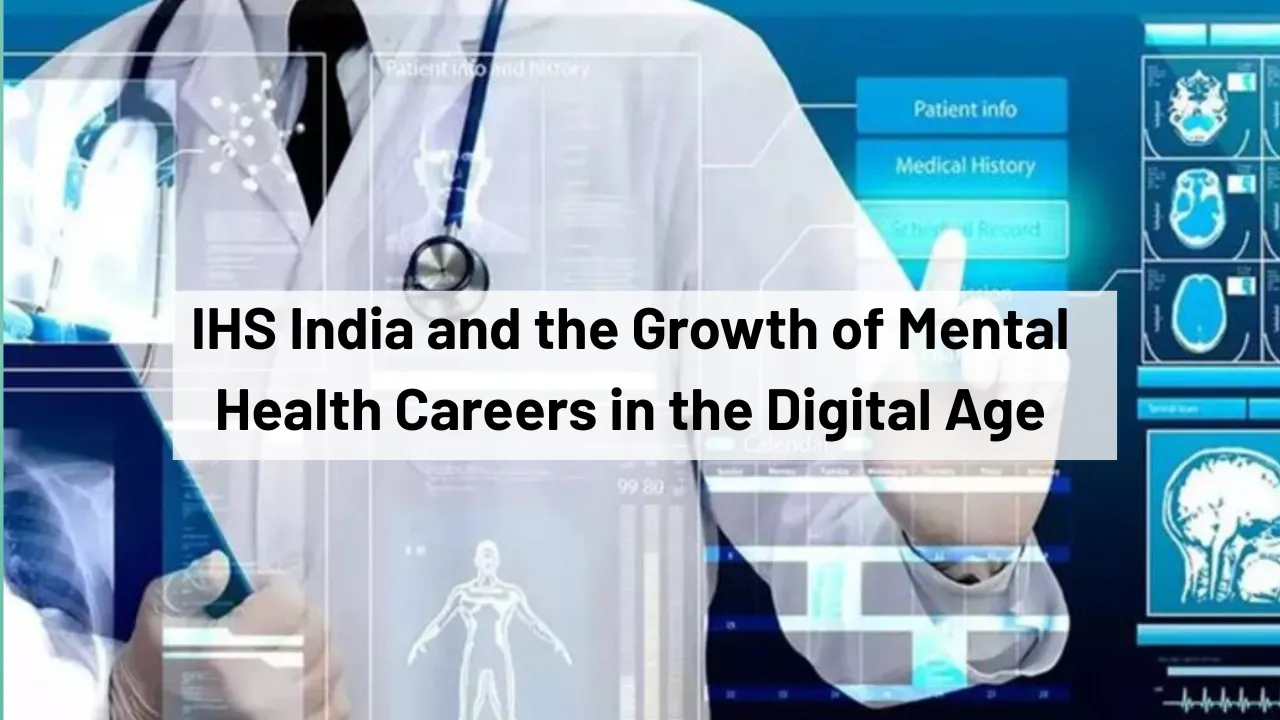Urban Health Challenges are rapidly growing concerns in today’s world, especially in developing countries experiencing fast-paced urbanization. As cities continue to swell, they bring with them a complex mix of health problems that can no longer be ignored. Overcrowding, environmental degradation, limited healthcare infrastructure, and rising rates of both infectious and lifestyle diseases have made city living increasingly difficult for vulnerable populations.
This article examines how IHS India is rising to this challenge by equipping a new generation of professionals with the tools to address these critical urban health issues. With a curriculum designed for real-world impact, IHS India ensures that graduates are not only educated but also empowered to drive change in city health systems. We’ll explore the nature of urban health issues, how IHS India prepares its students, and the skills and experiences that make their graduates stand out in the field.
Urban Health Challenges
Urban Health Challenges refer to the complex public health problems that emerge as a result of rapid urbanization. These challenges involve a range of issues like poor sanitation, inadequate housing, pollution, lack of healthcare access, and mental health concerns due to city stress. As urban centers expand, they face growing pressure on resources and infrastructure, leaving large portions of the population—particularly low-income communities—at higher health risks. Tackling these challenges requires skilled professionals who understand not only the medical side but also the social, economic, and environmental dimensions of public health in urban settings.
Overview Table: Key Elements in Tackling Urban Health Challenges
| Aspect | Description |
| Urban Health Risks | Pollution, poor waste management, crowded housing, and limited sanitation |
| Educational Response | Practical, field-based health education by institutions like IHS India |
| Skills Required | Data analysis, community engagement, policy-making, crisis response |
| Professional Opportunities | Roles in government, NGOs, hospitals, and international health bodies |
| IHS India Advantage | Real-world exposure, modern curriculum, research focus, and field training |
Understanding Urban Health Challenges
At the core of many urban problems are poor environmental conditions and limited health infrastructure. With the rise of informal settlements and slums, millions live without clean water, sewage systems, or access to regular medical care. This results in outbreaks of communicable diseases and long-term health consequences.
In addition, city residents are facing increasing rates of non-communicable diseases like diabetes, heart conditions, and respiratory issues, often caused by pollution and sedentary lifestyles. Mental health is another growing concern, especially among youth and working populations exposed to chronic stress and poor living conditions.
The blend of environmental health issues and systemic healthcare gaps requires a well-trained health workforce that can think across disciplines and implement targeted interventions. This is where educational institutions like IHS India step in.
Role of IHS India in Urban Health Education
IHS India plays a pivotal role in preparing students to understand and resolve urban health issues. Unlike traditional classroom-focused health education, the approach at IHS India is rooted in field engagement, research, and active participation in urban health programs.
Students are exposed to the realities of urban communities through internships with city hospitals, NGOs, and public health departments. They learn to examine real-time data, conduct community assessments, and design solutions tailored to the needs of urban populations. Courses on environmental health, health systems management, and urban policy help students grasp the broader framework of health in urban environments.
What sets IHS India apart is its balance between theory and practice. While academic learning forms the foundation, real-world application ensures students graduate ready to work at the frontline of public health challenges.
Key Skills Taught to Tackle Urban Health Challenges
Graduates from IHS India are trained in skills that are essential for addressing modern-day urban health problems. Some of the core competencies include:
- Data Analysis & Mapping: Learning how to track disease patterns and health trends using technology and research tools.
- Community Outreach: Engaging with diverse urban populations to promote awareness and behavior change.
- Policy Advocacy: Understanding how to influence urban policy for better health planning and resource allocation.
- Crisis and Emergency Response: Being prepared to act during disease outbreaks, floods, air quality crises, or infrastructure failures.
- Cross-sector Collaboration: Working with urban planners, sanitation workers, and policymakers to design integrated health solutions.
These practical and adaptable skills make IHS India graduates highly employable in both national and international public health sectors.
Real-World Exposure and Internships
Real-world exposure is central to the training model at IHS India. The institute partners with leading organizations, including city health departments, international NGOs, and urban development projects, to provide students with hands-on experience. Internships are structured to place students in the heart of urban challenges—be it conducting health surveys in slums or supporting vaccination drives in densely populated neighborhoods.
This early professional engagement boosts students’ confidence and problem-solving abilities. They not only gain knowledge about the health problems cities face, but also understand how to interact with stakeholders and communities to create sustainable change.
Research and Innovation at IHS India
Research is another cornerstone of IHS India’s approach to learning. Students are encouraged to undertake research projects that explore the intersections of health, environment, infrastructure, and governance. These projects often result in practical recommendations for urban policy or health systems improvements.
Some students focus on topics such as the health impact of air pollution, the spread of vector-borne diseases in overcrowded areas, or access to maternal health in low-income city wards. Through such research, students learn how innovation and evidence-based strategies can play a role in solving urban health challenges.
Importance of Collaboration and Teamwork
No single sector can solve urban health issues alone. Effective health strategies require joint efforts between health professionals, urban planners, engineers, social workers, and local governments. IHS India incorporates interdisciplinary learning into its courses, allowing students to simulate these real-world collaborations.
Through group projects and simulated urban health planning exercises, students learn how to lead teams and work cooperatively. They understand the value of collaboration in creating inclusive, sustainable health interventions that reach the most vulnerable populations
Benefits of Studying Urban Health at IHS India
- City-Focused Curriculum: Designed to address the real challenges of urban living.
- Professional Development: Fieldwork and internships help students build their careers early.
- Global Exposure: Case studies and international partnerships bring a broader perspective.
- Innovation Hub: Strong emphasis on research and new ideas in urban health.
- Social Impact: Graduates contribute directly to community well-being and urban transformation.
How IHS India Graduates are Making a Difference
Graduates from IHS India are now working at the frontlines of public health, making tangible improvements in urban settings. Some are leading disease prevention programs, while others work in urban policy design. Their training has equipped them with the flexibility to adapt, the insight to lead, and the commitment to improve city health outcomes.
From reducing air-borne illnesses in polluted cities to increasing healthcare access in underserved zones, these professionals are living proof of the impact quality education can have on public well-being.
FAQs
What are urban health challenges in India today?
They include overcrowded living spaces, poor sanitation, air and water pollution, limited access to healthcare, and rising non-communicable diseases.
How is IHS India different from other health institutions?
IHS India focuses on field-based learning, interdisciplinary training, and real-world exposure tailored to urban public health issues.
Can students from non-medical backgrounds join IHS India?
Yes, the programs are designed for students from various academic fields who are passionate about public health and urban development.
Does IHS India support job placements?
Yes, graduates often find roles in NGOs, government agencies, health departments, and international health organizations.
Is research a big part of the curriculum?
Absolutely. Students are guided to undertake impactful research that addresses specific urban health concerns, shaping both policy and practice.
Conclusion
Urban Health Challenges are one of the most pressing issues of our time. As cities expand, the need for skilled health professionals who understand the complex nature of urban living becomes critical. IHS India is playing a key role in filling this gap by preparing its graduates with the skills, knowledge, and experience needed to tackle these challenges head-on.
By choosing a path focused on urban health, students at IHS India are not just building careers—they are creating a future where healthier cities are possible. If you’re interested in being a part of this transformation, explore what IHS India has to offer and consider how you, too, can make an impact.







